
While many pet owners only seem to focus on the foods that are toxic to dogs, cats beckon for the same attention. Dogs, being the affectionate beggars that they are, demand more attention leading to cat owners to rarely blink an eye at what "people food" they are feeding to the little fur balls. However, cat owners should watch their plates just the same. There are a number of human foods that are toxic to a cat's sensitive system and can cause serious consequences if ingested.

This is a famous dog toxin, but is also hazardous to cats for the same reason it is to dogs. Chocolate contains theobromide as well as caffeine, both of which stimulate the heart and nervous system. Owners might think it is cute to see their cat stimulated, but it is actually quite dangerous. Depending on the concentrations (the darker the more dangerous) symptoms can include vomiting, increased thirst, severe agitation, muscle tremors, seizures and death. No chocolate is safe for cats, but the most dangerous concentration of theobromide and caffeine lies in plain, dry, unsweetened cocoa powder primarily used for baking.
All members of the onion family such as shallots, garlic, scallions and the like contain compounds that can damage the red blood cells of a cat if eaten in sufficient qualities. While they may be beneficial for human consumption, they are definitely harmful to a cat. The toxin that affects cats cannot be cooked out, as some owners in the past have thought. Exposure to concentrated forms of onions, such as onion soup mix, dehydrated onions and even garlic powder are much more harmful as well. Symptoms of onion ingestion usually do not manifest until a solid week after consumption. Young cats may develop anemia, while others may seem weak and have pale gums. The urine of the cat will also appear orange or red in the litter box.
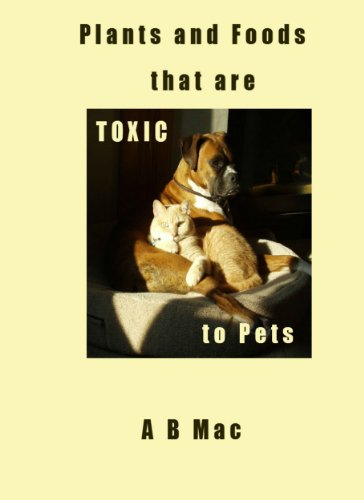 Plants and Foods that Are Toxic To Pets
Plants and Foods that Are Toxic To PetsAlcohol is harmful to any animal in the same way it is to humans. It is no more a poison to pets than it is to humans, the only result from drinking it is drunkenness. However, animals, especially those as small as cats, are much more susceptible to it than humans. This means just a little bit can get a pet very drunk. Like with too much alcohol in humans, over consumption can cause coma, seizure and death. But only silly people give cats alcohol, right? It is not always that simple. Cats, as we know, are drawn to milky drinks like white Russians, alcoholic egg nog and Irish cream so it is not always a case of "giving" it to them so much as them sneaking it.
Raw bread dough is made from live yeast cultures which can be hazardous to cats. It is hard for them to digest, often leading it to stay in a cat's stomach. This warm, wet environment is the perfect area in which for yeast to grow and thrive. As the yeast multiply, the mass of dough expands. This can be severe enough to cut off the blood flow to the stomach wall as well as effect breathing. What is worse is that as the yeast metabolizes the sugar from the dough, it processes into alcohol. In larger amounts this can cause an alcohol overdose.
While many mushrooms are poisonous to humans, even those safe for human consumption are poisonous to cats. Almost all mushrooms contain toxins that affect multiple systems in the body that can cause shocks and result in death. While a cat is significantly less likely to consume a mushroom, it is just best to avoid giving them to cats or leaving them around just in case they have a case of whimsy and decide to sample them.
While cats benefit from protein, giving them raw eggs is as dangerous to cats as it is to humans. Raw eggs may contain Salmonella which can infect cats just like it does humans. However, even cooked eggs should only be fed to cats sparingly. Eggs contain the enzyme avidin which decreases the absorption of biotin (a B vitamin). A deficiency of this vitamin can lead to skin and coat problems.
We have all seen it in the movies or on television, some sweet old cat owner spoiling their cat rotten with fish. This is actually a pretty big recipe for cat health problems. While cats love raw fish and the occasional treat of it is alright, a diet of only fish for a prolonged period will lead to a thiamine deficiency. This deficiency leads to a loss of appetite, seizures and death. Fish such as tuna also lacks the proper nutrition that cats need and will lead to malnutrition. Not to mention that many fish these days contain levels of mercury that merit acknowledgement, which can cause similar symptoms as in humans but much more quickly.
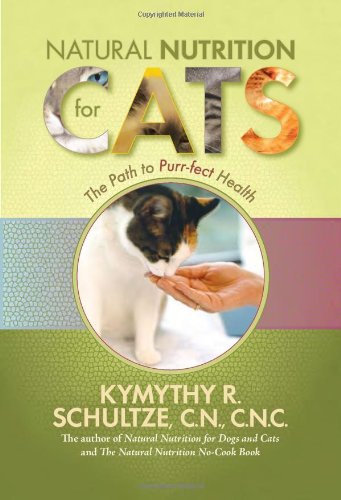 Natural Nutrition for Cats: The Path to Purr-fect Health
Natural Nutrition for Cats: The Path to Purr-fect HealthGrapes and raisins not only pose a choking hazard to cats but can also do damage on the inside. Grapes and raisins, which are of course made from grapes, contain a toxin that has been known to cause kidney damage in cats. The toxin has not yet been identified, so it is best just to keep them away just in case.
While small amounts of liver now and then are fine for cats and a good source of protein, prolonged feeding of liver can cause a too much Vitamin A, or Vitamin A toxicosis. Symptoms of Vitamin A toxicosis include arthritis, joint stiffness and eventually the joint fuses together as a new bone making it unbendable. It takes awhile for these symptoms to appear but essentially will immobilize the animal. While liver has the highest Vitamin A content, other organ meats fed to cats can also cause this. Supplements that contain high amounts of cod liver oil can also be just as guilty.
There are a large variety of molds that grow on food; some of these molds produce a toxin called tremorgenic mycotoxins which can cause serious and even life threatening problems if eaten by cats. Signs of tremorgenic mycotoxin poisoning include small area muscle tremors before progressing to full body tremors. If left untreated, the progress further to convulsions and death. Cats tend to be finicky, so usually they will stay away from foods that have gone a bit off. However, cats have been known to eat dairy products such as cheese or cream cheese regardless of mold.
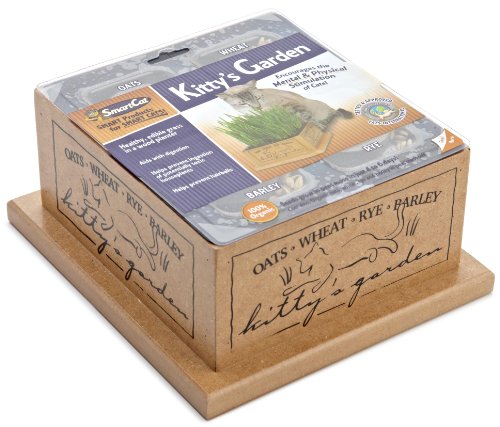 SmartCat 3844 Kitty's Garden Edible Grass Planter
SmartCat 3844 Kitty's Garden Edible Grass Planter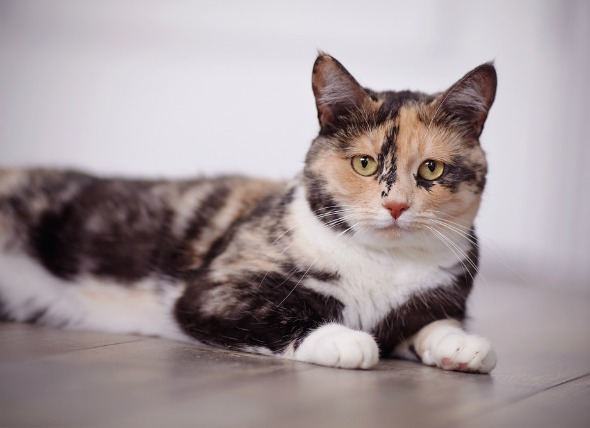 Crystals in the Urine in Cats
Crystalluria in Cats
Crystalluria is a medical co
Crystals in the Urine in Cats
Crystalluria in Cats
Crystalluria is a medical co
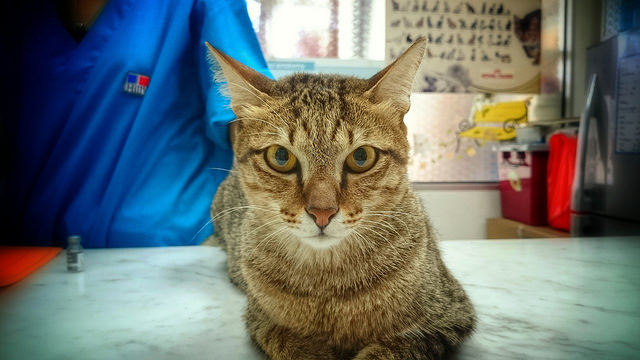 Bile Duct Obstruction in Cats
Bile Duct Obstruction in Cats
Bile is a yellow-green flu
Bile Duct Obstruction in Cats
Bile Duct Obstruction in Cats
Bile is a yellow-green flu
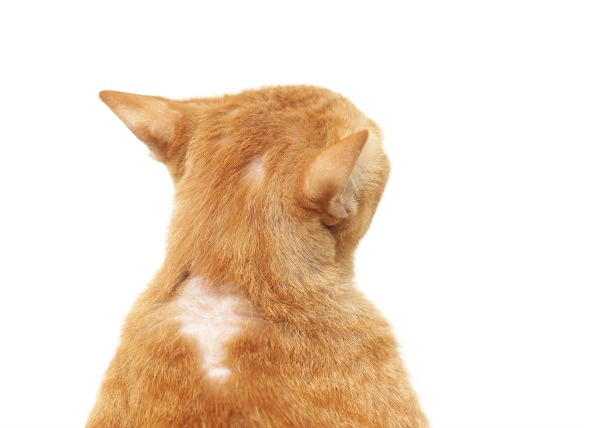 Hair Loss in Cats
Alopecia
Hair loss (alopecia) is a common problem
Hair Loss in Cats
Alopecia
Hair loss (alopecia) is a common problem
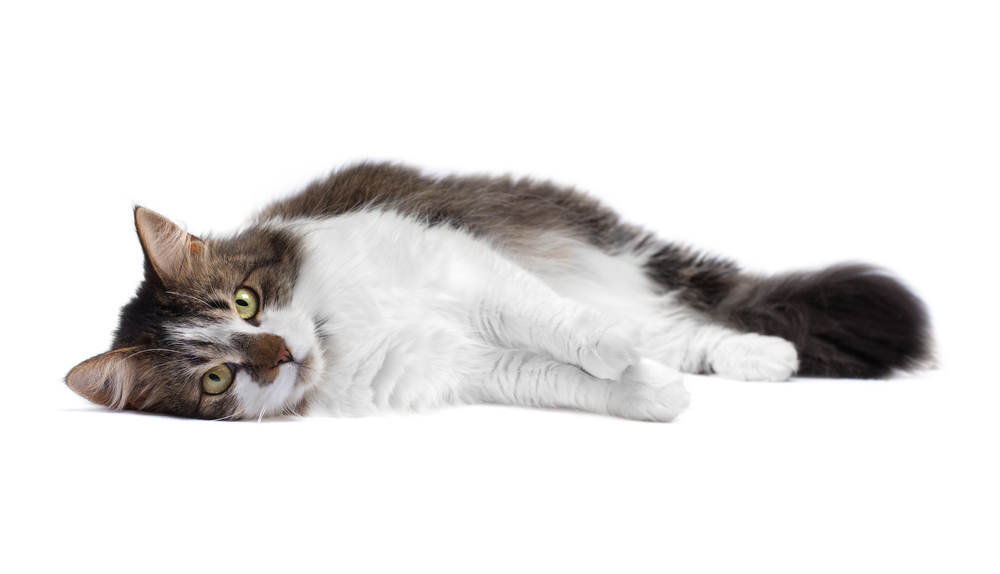 Advil Poisoning in Cats
Ibuprofen Toxicity in Cats
Ibuprofen is a non-ste
Advil Poisoning in Cats
Ibuprofen Toxicity in Cats
Ibuprofen is a non-ste
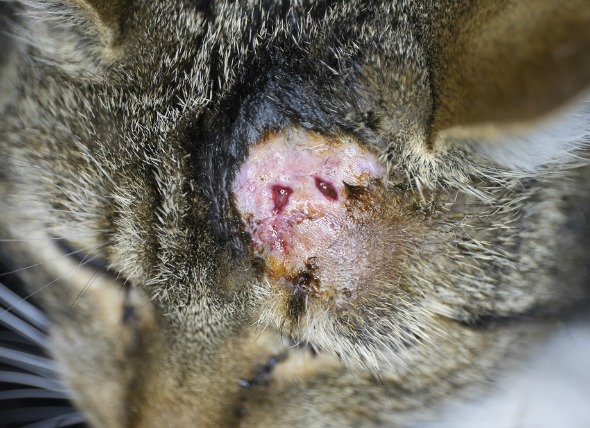 Abscesses in Cats
Cats, like people, are prone to skin irritations.
Abscesses in Cats
Cats, like people, are prone to skin irritations.
Copyright © 2005-2016 Pet Information All Rights Reserved
Contact us: www162date@outlook.com